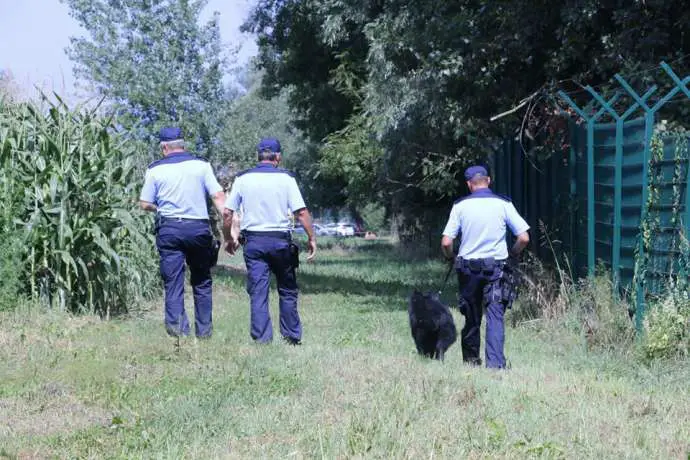STA, 9 July 2020 - After restrictions imposed to contain the Covid-19 pandemic suppressed illegal migration into Slovenia, police have recorded a renewed steep rise in the numbers trying to cross the border illegally.
Police handled 4,993 instances of illegal border crossing between 1 January and 30 June, a decrease of 12.4% compared to the same period last year, but a renewed upward trend was detected recently.
However, presenting more detailed data at Wednesday's session of the parliamentary Home Affairs Committee, Interior Ministry State secretary Franc Kangler said the six-month statistics in fact reflected the situation in three months only, as there was little illegal migration when the border was closed.
Deputy Police Commissioner Tomaž Pečjak said that by Wednesday morning 5,514 attempted to enter the country illegally, up from 5,300 only two days earlier.
This means that more than one percentage point of the "deficit" compared with the same period last year has been offset in a matter of two days, said Pečjak.
The police recorded 1,755 instances of illegal crossing in June, which compares to 1,200 in the same peak month last year, with Pečjak commenting that if the trend continued the 2,000 mark will be crossed in July.
Committee chair Branko Grims (SDS) voiced concern about the "drastic" increase in illegal migrants, projecting that if the trend continued the total for the year would hit or even surpass 20,000.
Given the increase, there is a shortage of 700 police officers, Kangler said, urging the committee to call on the government to retable the proposal to invoke a special article of the defence act that would give soldiers police powers to secure the border.
The committee responded to his appeal by backing the corresponding resolution despite criticism from the opposition.
Grims said that the committee also backed by eight votes in favour and none against the proposal to recommend to the government to withdraw from the global compact for migration.
Arguing that the agreement was but a dead letter, Grims said that by withdrawing from it Slovenia would give a clear signal to illegal migrants that it did not want to be a destination country.
The police report shows that there has been a substantial increase in the number of Moroccans in January-June, with 1,281 attempting to enter the country illegally in the first half of the year.
Along with the citizens of Pakistan (1,264) and Afghanistan (719), Moroccans are involved in more than three out of four instances of illegal crossing, a police report shows.
The number of those expressing the intention to seek asylum decreased by almost 20% year-on-year to 1,766 as of the end of June, which the police said was because of a decline in the number of Algerians, who found an alternative route into Europe.
The most of those who expressed their intention to ask for international protection were Moroccan nationals (761), followed by Afghans (250) and Algerians (226).
Since Morocco would not repatriate its citizens, police have had difficulty returning those whose asylum applications have been rejected.
Another issue pointed out in the report is secondary migration when applicants leave the country during or after the asylum procedure and file a new request in another country if they are apprehended there.
The main point of entry for illegal migrants on the internal border remains Italy.
The number of foreigners found to have entered Slovenia without proper documents or permits across the internal border declined by 22% year-on-year in the first six months, which is attributed to the restrictions related to the pandemic.
Western Balkan countries in particular imposed restrictions on movements and even shut migrant centres, however, estimates are that between 10,000 and 15,000 migrants are stranded in Bosnia and Herzegovina.






